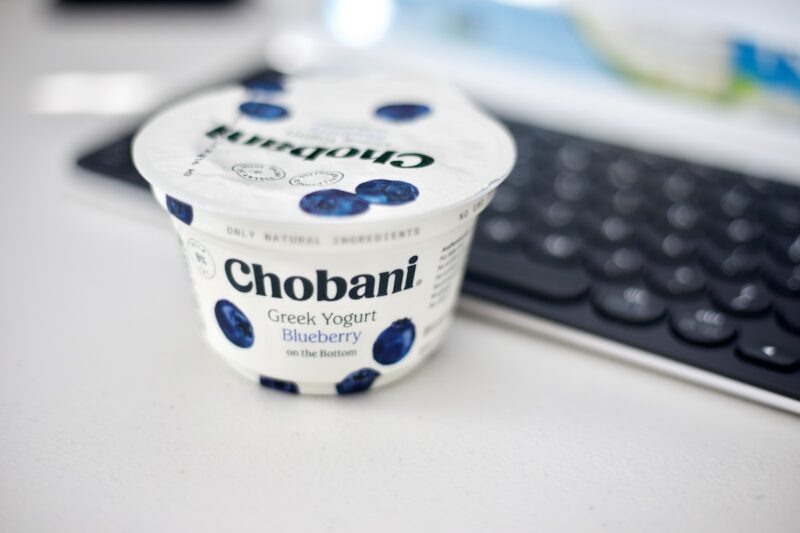Greek yogurt is a staple in many households, cherished for its creamy texture, rich flavor, and numerous health benefits. But what happens when you find yourself with a surplus of this delicious dairy delight? Can you freeze Greek yogurt? If so, how can you do it while preserving its taste and texture?
This post will guide you through everything you need to know about freezing Greek yogurt, exploring its benefits, drawbacks, practical tips, and more, ensuring you maximize your enjoyment of this nutritious ingredient.
Can You Freeze Greek Yogurt?
Yes, you can freeze Greek yogurt! While freezing any dairy product can often alter its texture, it is feasible with Greek yogurt, provided you take the right precautions. Here’s how to properly freeze it to minimize any unwanted changes.
How to Freeze Greek Yogurt
Select the Right Yogurt: Start by choosing a brand or container of Greek yogurt you’d like to freeze. If you’re using a large tub, consider portioning it out, as this will be more manageable when defrosting.
Portion Out: Use airtight containers or freezer bags to portion out smaller servings. This not only facilitates easier use later on but also ensures that you only defrost what you need.
Label and Date: Don’t forget to label each container or bag with the date of freezing and the quantity. This will help you keep track of how long it’s been in the freezer.
Freezing: Place your containers or bags flat in the freezer. If you’re using bags, try to expel as much air as possible before sealing to prevent freezer burn.
Storing: Greek yogurt can be stored in the freezer for about 1 to 3 months. While it may be safe to eat beyond this time, the quality may deteriorate.
Thawing Greek Yogurt
Once you’re ready to use your frozen Greek yogurt, it’s essential to thaw it properly:
Refrigerator Method: The best way to thaw frozen yogurt is to place it in the refrigerator overnight. This gradual thawing helps maintain texture as much as possible.
Quick Thaw Method: If you’re in a hurry, you can thaw it in a bowl of cold water for about an hour. However, be mindful of the quality.
Remember, after thawing, the yogurt may separate. Stir it well to recombine the watery liquid with the thicker substance for a smoother consistency.
The Science Behind Freezing Yogurt
Freezing is a common technique used to preserve foods, but dairy products like yogurt can be sensitive due to their composition. The primary concern when freezing Greek yogurt is the water content. When yogurt freezes, the water within it turns to ice, which can alter its creamy texture once thawed.
Ice Crystals and Texture
Larger ice crystals can form during the freezing process, potentially breaking down the structure of the yogurt. This is why portioning out smaller quantities can be beneficial—smaller amounts freeze and thaw faster, minimizing the formation of larger ice crystals.
Emulsifiers and Stabilizers
Some brands may add emulsifiers or stabilizers to their Greek yogurt, which can help maintain a creamier texture after freezing. If you are particularly concerned about preserving the integrity of your yogurt post-freezing, consider opting for a brand that emphasizes natural ingredients without added thickeners.
Pros and Cons of Freezing Greek Yogurt

Freezing Greek yogurt has its advantages and disadvantages. Understanding these can help you make more informed decisions about how and when to freeze your favorite dairy product.
Advantages
Reduced Waste: Freezing allows you to extend the shelf life of Greek yogurt, significantly reducing food waste if you have more than you can consume in a reasonable timeframe.
Convenience: Having frozen yogurt on hand can be a lifesaver for quick snacks, smoothies, or baking, eliminating the need to run to the store.
Health Benefits: By freezing Greek yogurt, you preserve its nutritional properties, maintaining its protein, calcium, and probiotics for future consumption.
Versatile Uses: Frozen Greek yogurt can be a base for smoothies or enjoyed as frozen yogurt treats, making it a delightful alternative during hot weather.
Disadvantages
Texture Changes: Perhaps the most significant drawback is the textural change, which may not be suitable for every recipe or purpose. Some people find thawed yogurt grainy or less appetizing.
Limited Shelf Life: Although freezing extends the yogurt’s life, it’s still temporary. Keeping track of what you have in the freezer is essential to ensure you use it within an optimal time frame.
Flavor Impact: The nuances of flavor can be affected after freezing, with some users noting a slight change in taste.
Recipe Ideas Using Frozen Greek Yogurt

If you’ve successfully frozen some Greek yogurt, it’s time to explore creative ways to use it in your kitchen! Here are a few recipe ideas you can try:
1. Greek Yogurt Smoothie
Ingredients:
1 cup frozen Greek yogurt
1 banana
1 cup spinach (optional)
1 cup almond milk (or any preferred milk)
Honey or maple syrup to taste (optional)
Instructions:
Place all ingredients in a blender.
Blend until smooth, adding more milk if needed to reach your desired consistency.
Serve immediately and enjoy a refreshing, protein-packed drink!
2. Greek Yogurt Pancakes
Ingredients:
1 cup frozen Greek yogurt (thawed)
1 cup flour (whole wheat or all-purpose)
1 egg
1 cup milk
1 tablespoon baking powder
Pinch of salt
1 tablespoon honey or sugar (optional)
Instructions:
In a mixing bowl, combine flour, baking powder, and salt.
In another bowl, mix the thawed Greek yogurt, egg, milk, and honey.
Combine wet and dry ingredients until just blended.
Cook on a greased skillet over medium heat until bubbles form, then flip and cook until golden brown.
Serve warm with your favorite toppings.
3. Creamy Greek Yogurt Dressing
Ingredients:
1 cup frozen Greek yogurt (thawed)
2 tablespoons olive oil
1 tablespoon lemon juice
1 teaspoon garlic powder (or minced garlic)
Salt and pepper to taste
Fresh herbs (like dill or parsley) for flavor
Instructions:
In a bowl, combine all the ingredients.
Mix until well blended, adjusting seasoning as necessary.
Use as a dressing for salads or a dip for veggies.
Common Myths About Freezing Greek Yogurt
There are several misconceptions about freezing Greek yogurt that can create unnecessary hesitation. It’s time to debunk a few of these myths.
Myth 1: You Can’t Freeze Greek Yogurt at All
One of the most prevalent myths is that freezing Greek yogurt spoils it completely. In reality, while there may be changes to texture, many people successfully freeze and enjoy it afterward.
Myth 2: It’s Only Good for Smoothies
Many think that the only useful outcome of frozen Greek yogurt is in smoothies. While that’s certainly a delicious option, there are countless recipes to enjoy, as explored above.
Myth 3: Freezing Kills Probiotics
While freezing temperature may slow down probiotics, it doesn’t kill them. Once thawed, the probiotics can be reactivated, giving you continued digestive health benefits.
Best Practices for Storing Greek Yogurt
To maximize the shelf life and quality of your Greek yogurt, whether fresh or frozen, there are some best practices to keep in mind.
Proper Refrigeration
Store Greek yogurt in the coldest part of your refrigerator, ideally near the back, to prevent temperature fluctuations. Ensure it’s well-sealed after each use to avoid introducing bacteria.
Check Expiry Dates
When purchasing Greek yogurt, always check the expiration date. The closer you are to that date, the more indicated it is to consume or freeze it soon.
Monitor for Signs of Spoilage
Always use your senses to check for spoilage. If your yogurt has a weird odor, is discolored, or has excessive liquid separation (beyond the typical), it may be best to discard it.
Conclusion
Freezing Greek yogurt opens up a world of convenience and versatility while helping combat food waste. Although it may alter the texture somewhat, you can still enjoy it in a variety of delicious ways. Whether you use your frozen yogurt in smoothies, pancakes, or dips, knowing how to freeze and thaw it correctly allows you to keep this nutritious food at your fingertips.






